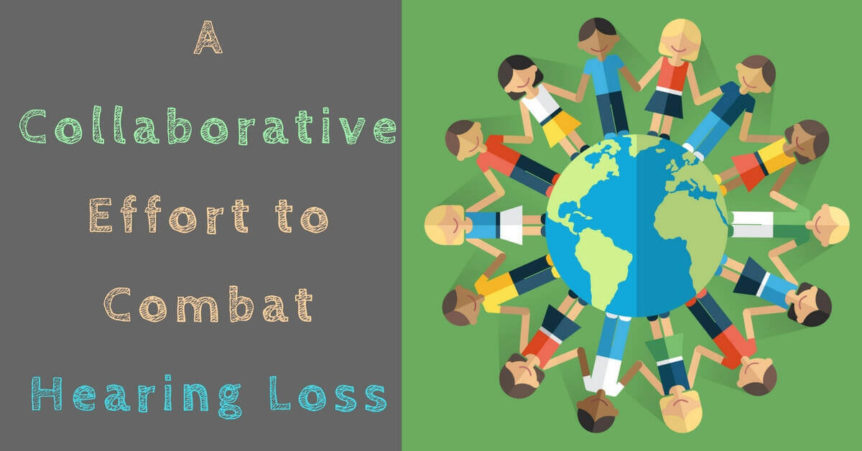The global rate of hearing loss is on the rise, jumping from 14 to 18 percent of the population in the last quarter century, and projected to increase in the future. In the face of confronting hearing loss as a worldwide health concern, specialists at Duke University School of Medicine are looking toward building an international initiative. Their proposal prioritizes accessibility to screening and treatment, and seeks to network resources at institutions around the world to collectively curb hearing loss.
Putting Hearing Loss On the Map
Hearing specialists at Duke noted that global hearing health initiatives have had trouble getting off the ground in the past, but were encouraged by a recent innovative international model for lowering rates of preventable blindness. The VISION 2020 campaign, spearheaded in part by the World Health Organization (WHO) offered a model for the breadth and depth Duke researchers are hoping their project can achieve. Part of the new program for hearing loss is to push for greater outreach and access in areas where hearing loss treatment has taken a backseat to health issues seen as more immediate concerns.
Despite facing challenges, the fight for more recognition and direct strategy to confront hearing loss has been building momentum. Most recently, the US Congress has pushed for greater accessibility to hearing aid technology. This push for wider recognition of hearing loss as a significant healthcare concern makes it seem like the ideal time to establish worldwide networks. The team at Duke hopes to connect a world map of universities and institutions interested in hearing loss to commit time and resources to implementing the new initiative.
New Strategies in Hearing Healthcare
Another part of what makes the Duke team hopeful that they can develop a far-reaching program for hearing loss treatment is utilizing low-cost, high-impact strategies. Research provided the Duke team with actions to prioritize and general pathways on where particular strategies may be most effective.
One suggestion is employing widespread smart phone technology to help in the diagnosis and treatment of hearing issues, especially in low and middle-income areas of the globe. Smart phones can be employed to deliver hearing exams with great mobility and efficiency, and they can also become part of the treatment for hearing loss, such as using apps to convert smart phones into handheld speech-to-text assistive hearing devices.
Another strategy is education and prevention around sources of loud everyday noise, such as dangerous volume levels on ear buds and headphones, and the risks of sustained exposures to loud sound. Targeted at middle and high-income regions, this approach works to fill in missing information about unconsidered sources of hearing damage. With bulging rates of hearing loss, it is also being speculated that hearing loss is occurring in younger populations and largely going undetected as exposure to noise does lasting damage on youthful ears.
The work of the initiative also includes working to reduce the incidence of diseases linked to hearing loss through awareness, prevention, increased immunization and treatment. Ear infections and ear trauma, anemia and high fevers all are linked to hearing loss in children. Diseases occurring more often in adult populations, like Ménière’s disease and tinnitus, also are associated with hearing loss. Medical initiatives may also incorporate educational material about medication and treatments with a link to hearing loss.
When a person struggles with hearing loss, it strains many other systems in their life, from interpersonal relationships to mental health, ability to work, and even cognitive clarity and function. The Duke proposal of intervention and treatment access is a plan to take small actions with big impacts upon world health.
Neighborhood Hearing Aid Center
While hearing loss treatment and prevention gains global attention, at Neighborhood Hearing Aid Center we’re always ready to be your hearing specialist close to home. Our commitment to hearing health extends to our focused Hearing Education and Rehabilitation (HEAR) seminars as well as offering our patients the best selection of hearing aids and custom noise protection options. If it’s time to schedule your next regular hearing exam, or you have questions about your hearing health, drop us a line and set up an appointment today.

